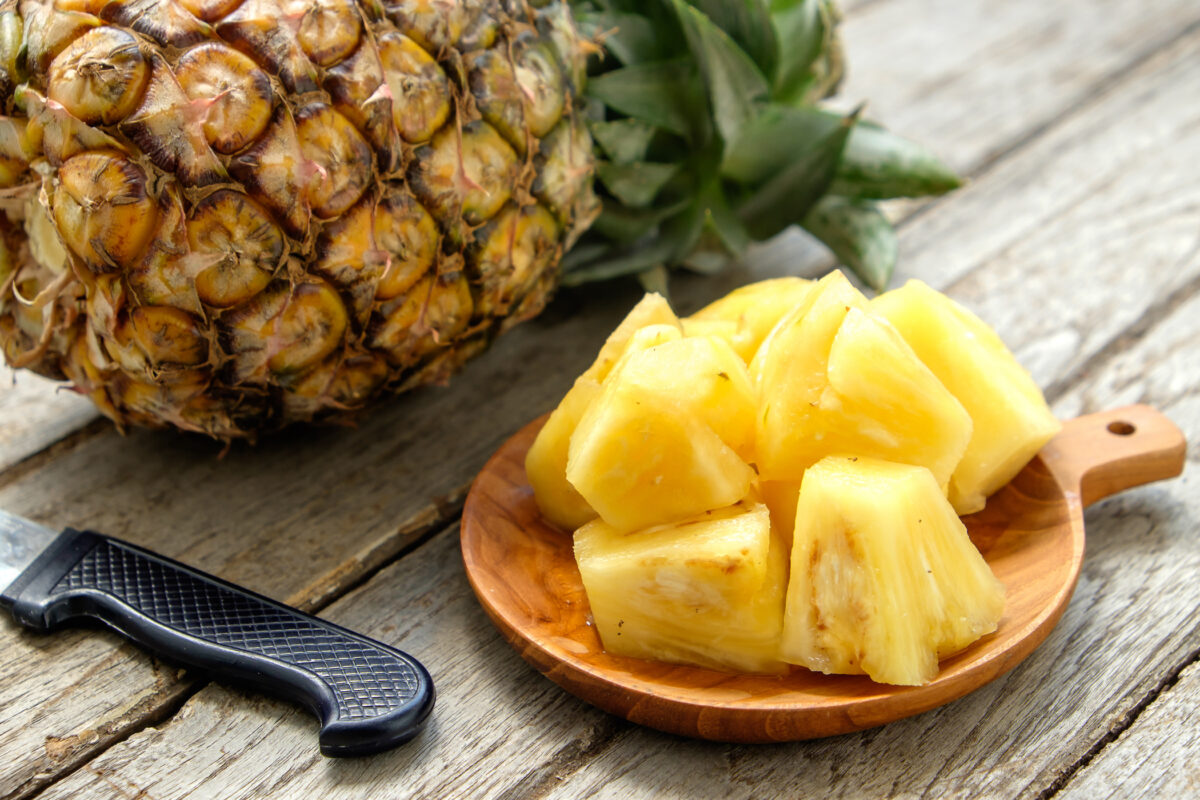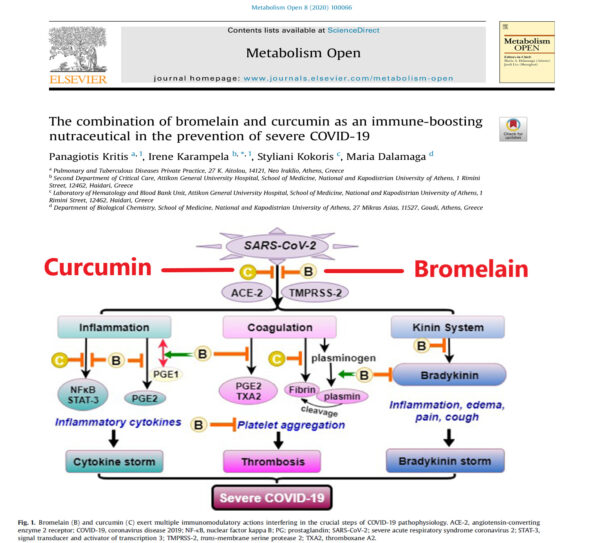


I find it interesting that many post-COVID acute sequelae are occurring in those who have taken failed COVID-19 vaccines. We are a long way off from definitive clinical trials of multidrug strategies for patients who have had multiple exposures to the SARS-CoV-2 spike protein via vaccination or recurrent COVID-19.

Kritis et al point out: “Curcumin (diferuloylmethane) is a natural phenol found in turmeric (Curcuma longa), a member of the ginger family of plants [4]. Curcumin modulates inflammation preventing the subsequent cytokine storm by inhibiting multiple transcription factors such as nuclear factor kappa B (NF-kB) and signal transducer and activator of transcription 3 (STAT-3), and downregulating the proinflammatory cytokines, as this has been demonstrated in human macrophages after influenza virus infection [4,6]. Additionally, curcumin inhibits ACE-modulating angiotensin II synthesis and downregulates inflammation, while it also promotes fibrinolysis and the anticoagulation process [4,6,7] (Fig. 1).
“The antiviral actions of curcumin against multiple viruses (influenza and hepatitis viruses, herpes viruses, human papillomavirus, human immunodeficiency virus, severe acute respiratory syndrome coronavirus, and other coronaviruses), bacteria, and fungi have been established by experimental evidence [8]. Remarkably, recent evidence from in silico studies has demonstrated that curcumin prevents SARS-CoV-2 entry into cells by blocking the viral binding sites and the cell ligands (spike protein, ACE-2 receptors, and basigin), downregulating trans-membrane serine protease 2 (TMPRSS-2), and by interfering with viral replication through the interaction with various viral proteins [4]. However, the minimal absorption of curcumin following oral administration presents a major limitation in its bioavailability [6].
“Bromelain is a cysteine protease, isolated from the pineapple stem (Ananas comosus) [9]. Traditionally, it has been used for its anti-inflammatory and healing effects in cases of arthritis and injury, while it has been approved in Europe for the debridement of burn wounds. Experimental studies have demonstrated that bromelain presents unique immunomodulatory actions:
- Downregulation of the pro-inflammatory prostaglandin E2 (PGE-2) through inhibition of NF-kB and cyclooxygenase 2 (COX-2)
- Upregulation of the anti-inflammatory PGE-1
- Activation of inflammatory mediators (interleukin 1b, interleukin-6, tumor necrosis factor-a, and interferon-g) as an acute response to cellular stress, but also inhibition of inflammatory mediators in states of overt cytokine production
- Modulation of T-cell responses in vitro and in vivo
- Enhancement of T cell-dependent, antigen-specific B cell antibody responses [5,10e14]
“Importantly, bromelain exerts dose-dependent anticoagulant effects:
- Downregulation of PGE-2 and thromboxane A2 (TXA2), thus leading to a relative excess of prostacyclin
- Promotion of fibrinolysis by stimulating the conversion of plasminogen to plasmin and prevention of platelet aggregation
“Bromelain also hydrolyzes bradykinin and reduces kininogen and bradykinin levels in serum and tissues, improving inflammation and edema as shown in animal studies [15]. Notably, the latter action supports the potential role of bromelain in alleviating COVID-19 symptoms such as cough, fever, and pain, and the more serious implications of inflammation, thrombosis, and edema. The effect of bromelain on PGE-2 inhibition exceeds that of prednisone and aspirin, presenting very low toxicity and no major side effects …
“Interestingly, a recent experimental study demonstrated that bromelain inhibits infection of VeroE6 cells by SARS-CoV-2 by blocking the virus binding and entry into cells via downregulation of ACE-2 and TMPRSS2 expression, and cleavage of the SARS-CoV-2 spike protein, presenting a novel, promising therapeutic option that warrants further investigation.”
In summary, the combination of curcumin and bromelain is well positioned to be supplements for people who are getting repetitive COVID-19/spike protein exposure. Future randomized trials will elucidate the clinical benefits of specific applications.
Reposted from Peter A. McCullough’s Substack
Views expressed in this article are the opinions of the author and do not necessarily reflect the views of The Epoch Times. Epoch Health welcomes professional discussion and friendly debate. To submit an opinion piece, please follow these guidelines and submit through our form here.
